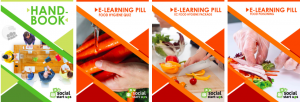What is it?
Social Start-Ups is a project financed by the European Union through Erasmus + KA2 and carried out by TAMAT Organization in collaboration with the University of Plymouth in England, Parco 3A, the Municipality of Brtonigla in Croatia, and AMSED Association. With the help of Ethical Purchasing Groups (EPGs), this project will carry out experimental discussions and activities related to entrepreneurship and business start-ups. Through this project’s learning-by-doing approach, the participating organizations will collaborate to develop a sustainable business development model that meets producers’ and consumers’ needs.
The project will commence with a “preparatory period” of analysis during which the involved organizations will work together to understand the strengths and weaknesses of start-ups and how they currently develop and function. With the help of the EPGs, the involved organizations will then begin to perform experimental business management activities. Based on the analyses and experiments performed throughout this project, the University of Plymouth will develop a practical tool guide and a “business diary” for those who wish to start a business.
What are the main goals?
The main goals of the Social Start-Ups project are to test new pedagogical methodologies for teaching adults, develop a better and more successful method for start-up development, and encourage citizens’ entrepreneurial spirit. To ensure that these goals are reached, the project will produce a business diary, a mentoring guide, and a handbook, all of which will guide entrepreneurs who wish to implement the new Start-Up methodologies developed throughout this project.



The Results
After the project “Social Start-Ups” was completed, the partnering organizations had the task of compiling and organizing all of the information related to the methodology and curriculum developed throughout this project. The end result is a series of e-learning guides that are designed to assist those who wish to begin a start-up business of their own.
In this section you will find:
- Local mapping of EPGs (to learn more about the situation of E.P.Gs and direct sales in Italy, Croatia and France);
- Methodological Tools (to know the project’s methodology);
- Business Diary (work notebook for the creation of Social Enterprise);
- Mentor Guide (guide to mentor a group for the start-up of a Social Enterprise);
- Curriculum (training plan of the methodology);
- Food Hygiene, Safety and Quality E-Pills (to learn to purchase in a critical way);
- Handbook (to learn more about the project’s experience and replicate it in other contexts).
